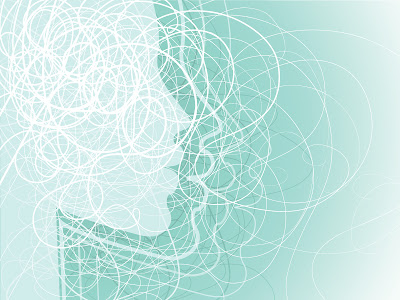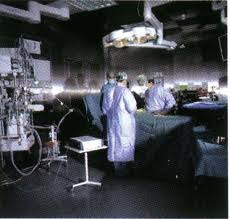" PSYCHOLOGY" - study or science of an individual's mind and behavior.....
Basically everyone know about a PSYCHOLOGIST i.e he is the one who is professionally strong in this study......
Human psychology has a holistic approach about the human existence based on the concepts of meaning,values,personal responsibilities,self-actualization,tragedy,satisfaction,etc i.e., basic human feelings in other words......
....In the present generation , main reason for psychological imbalances in a human being is "ADDICTION"
Wat is addiction???
why is this a main reason for psychological effects in human???????
yeah!coming to the same point .....consider a student only.... ,
they are getting addicted to some habits ...i.e they are not even in a position to control their mindset such a bad situation came to this generation ...so to change their mental status i.e to make him/her control themselves i.e control their mind,feelings,behavior etc, the professionals of this science give the counselling and this brings a drastic change in them....
.......All the thoughts that is going in this brain, is nothing but human psychological factors.......
The next main reason for the psychological imbalances is "EMOTIONS"
We all are favor of the feeling "emotion"
but do v all know what is emotion??
can we define it???
just try it.....
if not lets see what is this emotion.....
"Emotion" is often defined as a complex state of feeling that results in physical and psychological changes that influence thought and behavior....
"Emotionality" is associated with a range of psychological phenomena including temperament,personality,mood and motivation..
Human emotion involves "...physiological arousal,expressive behaviors,conscious experience..."
These are some of the emotions of humans...such as angry,frustration etc
PSYCHOLOGICAL DISORDERS:
ranges from post traumatic stress syndrome to common phobias....
1.schizophrenia:
it is a mental disorder characterized by a disintegration of the process of thinking and of emotional responsiveness.....
It most commonly manifests as auditory hallucinations, paranoid or bizarre delusions, or disorganized speech and thinking, and it is accompanied by significant social or occupational dysfunction. The onset of symptoms typically occurs in young adulthood, with a global lifetime prevalence of around 0.3–0.7%.
Diagnosis is based on the patient's self-reported experiences and observed behavior.
2.depression:
it is a state of low mood and aversion to activity that can affect a person's thoughts, behavior, feelings and physical well-being.
Depressed people may feel sad, anxious, empty, hopeless, helpless, worthless, guilty, irritable, or restless. They may lose interest in activities that once were pleasurable, experience overeating or loss of appetite, or problems concentrating, remembering details or making decisions; and may contemplate or attempt suicide.
This event may involve the threat of death to oneself or to someone else, or to one's own or someone else's physical, sexual, or psychological integrity,overwhelming the individual's ability to cope. As an effect of psychological trauma, PTSD is less frequent and more enduring than the more commonly seen acute stress response........
All the above disorders are the main disorders of psychology and the treatment for these vil be given by the counselling in maximum by observing the person for certain period of time...if possible treatment can also be done by using medicines......
TREATMENTS FOR PSYCHOLOGICAL DISORDERS:
Psychotherapy: it refers to all the diverse approaches used in the treatment of mental disorder and psychological problems.....many different treatment methods are used and experts estimate that there may be over 400 different approaches to treatment can be classified into three major categories....
- Insight therapies
- Behavior therapies
- Bio-medical therapies
INSIGHT THERAPIES: it is a "talk therapy" which involves pursuing increased insight regarding the nature of the client's difficulty and sorting through possible solutions....
Psychoanalysis: insight therapies involve verbal interactions intended to enhance client's self knowledge and thus promote healthful changes in personality and behavior...
psychoanalysis is an insight therapy that emphasizes the recovery of unconscious conflicts,motives and defenses through a variety of techniques..
Client centered therapy: It is an insight therapy that emphasizes providing a supportive emotional climate for the clients who play a major role in determining the pace and direction of their therapy..
BEHAVIOR THERAPIES:This involves the applications of learning principles to direct efforts to change client's maladaptive behaviors....and learning adaptive behaviors..
Aversion therapy: It is the most controversial of the behavior therapies ,where an aversive stimulus is paired with the stimulus that elicits an undesirable response....
eg: alcoholism,smoking etc
Cognitive behaviorial therapy:
seeks to help the patient overcome difficulties
by identifying and changing dysfunctional thinking,
behavior, and emotional responses. This involves
helping patients develop skills for modifying beliefs, identifying distorted thinking, relating to others in
different ways, and changing behaviors...
Treatment is based on collaboration between
patient and therapist and on testing beliefs. Therapy
may consist of testing the assumptions which one
makes and identifying how certain of one's usually-unquestioned thoughts are distorted, unrealistic and unhelpful.
Once those thoughts have been challenged, one's
feelings about the subject matter of those thoughts
are more easily subject to change. Beck initially
focused on depression and developed a list of
"errors" in thinking that he proposed could maintain depression, including arbitrary inference,
selective abstraction, over-generalization, and magnification (of negatives) and minimization (of positives).
BIO-MEDICAL THERAPIES:
Psychopharmacology involves the use of medication
to treat disorders. It is the most common form of biomedical therapy. It is used for emotional,
behavioral and mental disorders and benefits many patients. Drug treatment is often combined with psychotherapy.
Physicians prescribe different drugs based on the
nature of the problem and the patient's medical
history. Drug types include Antipsychotic drugs
(such as Thorazine), Antianxiety drugs (Valium,
alcohol), and Antidepressant Drugs (Tofranil, prozac, lithium)...
Electroconvulsive treatment (ECT) is used only for
cases of major depression, delusions and
hallucinations, or life-threatening sleep and
eating disorders that cannot be effectively treated
with drugs. Modern methods of administering ECT
employ low "doses" of electric shock to the brain
along with sedatives and relaxants to minimize the unpleasantness to patients. 60-90% of ECT patients
show rapid improvement....
Psychosurgery is a rare, last resort treatment when psychotherapy and psychopharmacology have failed.
This surgery consists of surgical destruction of neural pathways in the brain. One example of this type of
surgery is a cingulotomy, which involves severing the pathway from the frontal lobe to the basal
ganglia regions, called the cingulate pathway, of the brain.....
THERAPY UTILIZATION RATES:
|












